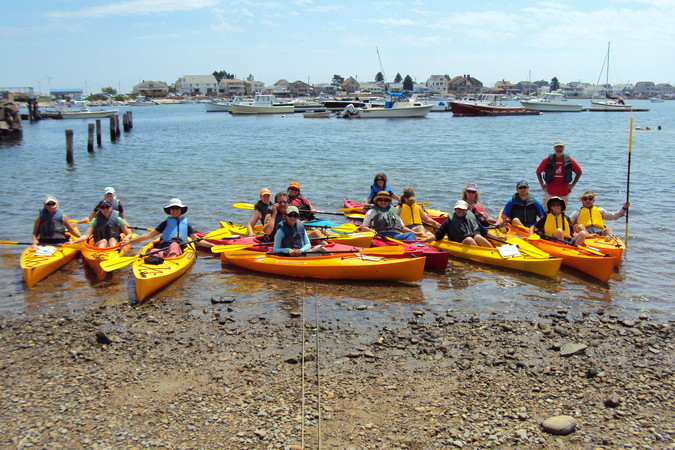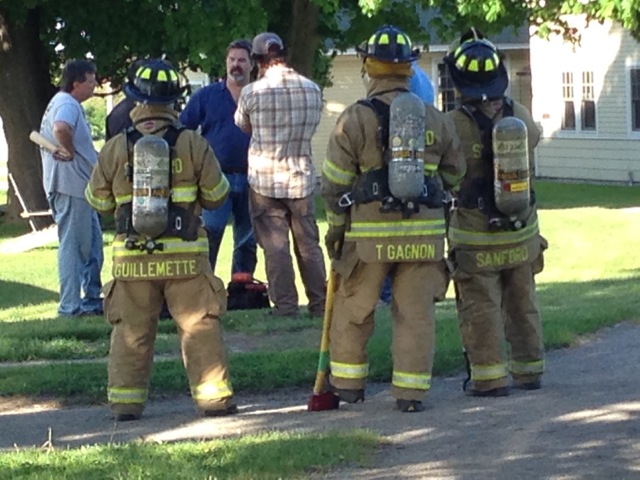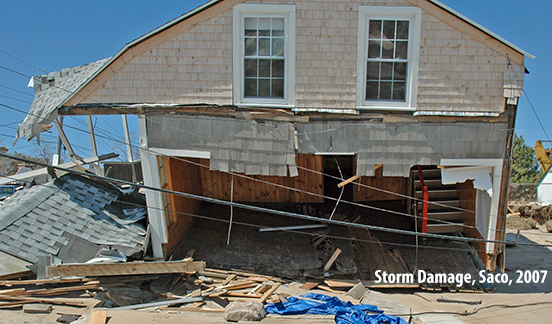The Wrack
The Wrack is the Wells Reserve blog, our collective logbook on the web.
The Wrack is the Wells Reserve blog, our collective logbook on the web.
Wells Reserve is expanding fisheries science and conflict management research thanks to two grants from the NERRS Science Collaborative.

The four New England research reserves are putting teachers on the estuary again this summer by offering free workshops that will give educators data-driven climate change activities to bring back to their classes. Each of the four TOTE (Teachers on the Estuary) workshops, one 3- or 4-day session per reserve, will train a dozen educators in reserve-style environmental monitoring, "coastal blue carbon" concepts, and ways to understand and address climate change.
Please note: The workshop at Wells Reserve will be held Monday, July 11 through Thursday, July 14, 2016. Review of applications will begin May 31, 2016.
Wells Reserve TOTE Application
Wells Reserve TOTE Draft Agenda
Wells Reserve TOTE Promotional Flyer
To learn more about TOTE workshops, see the articles at wellsreserve.org/tote.
Teachers often don't get much exposure to estuarine and watershed concepts during their own education, so it can be daunting for them to develop a curriculum (and locate suitable data sets) around these topics. TOTE workshops show teachers how to access and employ custom curricula and data that already meet Next Generation Science Standards or state education frameworks.
This course, launched in 2013, provides guidance in collecting, analyzing, and synthesizing qualitative data and using the results to improve the quality of meetings, foster effective project management, and facilitate collaborative research projects.
Interdisciplinary Methods for Stakeholder Engagement and Collaborative Research
Lessons from the National Estuarine Research Reserve System
 How can busy researchers work with even busier managers to facilitate effective application of science to the complex tasks of coastal management, from strategic planning to the design of best management practices and in day-to-day decision-making?
How can busy researchers work with even busier managers to facilitate effective application of science to the complex tasks of coastal management, from strategic planning to the design of best management practices and in day-to-day decision-making?
The NERR System is completing 5 years of research nationally around bridging the gulf (boundary spanning) between science and management. These workshops will review boundary spanning projects and work toward developing a primer of best practices for use in coastal management.
To build awareness, capacity, and skills to enable coastal management and research communities to use expert interdisciplinary practices to engage stakeholders in developing and implementing collaborative research projects that link science to coastal management and policy.
 Three angles of investigation into three waterways flowing through three municipalities have reached one encouraging conclusion: The Merriland River, Branch Brook, and the Little River are ecologically healthy and the people largely responsible, those living in the combined watershed, know and appreciate it.
Three angles of investigation into three waterways flowing through three municipalities have reached one encouraging conclusion: The Merriland River, Branch Brook, and the Little River are ecologically healthy and the people largely responsible, those living in the combined watershed, know and appreciate it.
The design for our Sustaining Coastal Landscapes and Community Benefits project, the first study of its kind, drew from the sciences of ecology, economy, and communications. Reserve staff and their colleagues from Clark University looked at streamside buffers in Sanford, Kennebunk, and Wells to find out how they affect life in the water and how members of the community value them.

The following was published in the Biddeford-Saco Journal Tribune Sunday edition, 6/15/2014.
When Facilities Manager John Speight watched a pickup truck accidentally drive into what he’d thought was a well-protected propane tank at the Wells Reserve at Laudholm last weekend, his first thought was: “I hear the hiss, so I’m still alive.”
His second thought was: “let’s keep it that way.”

The Sandy Dialogues facilitated an exchange of expertise and experience between New Jersey and Maine that culminated in two Maine-based coastal hazard preparedness training workshops. Through this project, the Wells Reserve and its partners learned from New Jersey's Jacques Cousteau Reserve and its stakeholders about the use of decision-support systems, combined with the experience of responding to and recovering from a major storm event.
The Sandy Dialogues stemmed from the earlier Climate Games project in Wells and a sea-level-rise vulnerability assessment done for the New Jersey coast.
March to November 2014